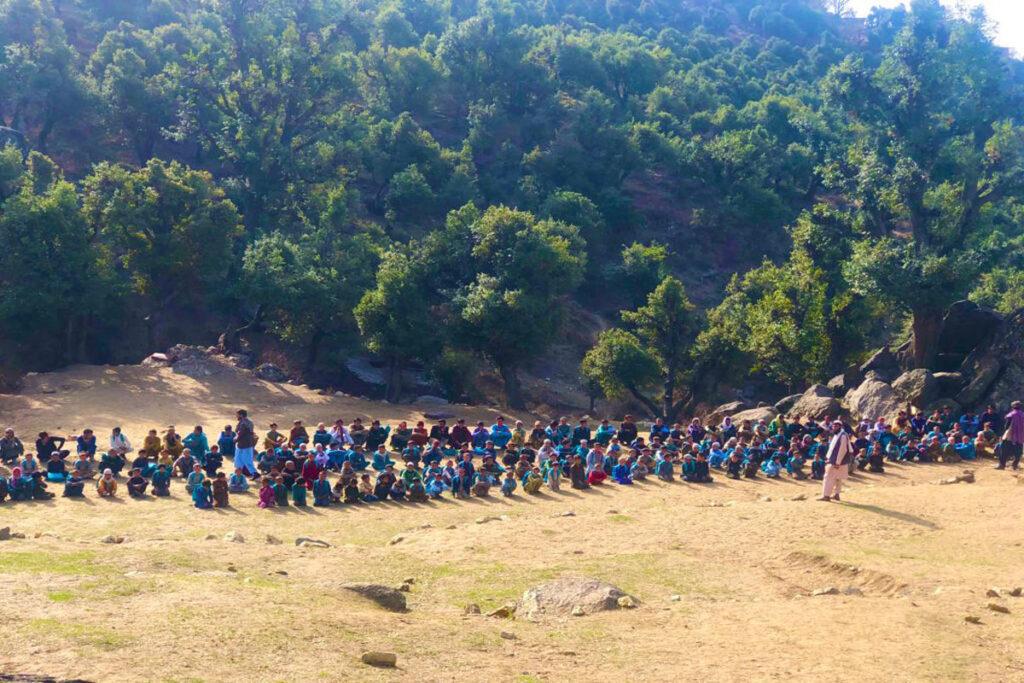ASADABAD (Pajhwok): More than half of the schools in eastern Kunar province are without buildings and their students attend classes in rented houses, mosques and under the open skies, an official says.
Kunar education director Mohibullah Haidari said there were a total of 494 schools in the province and 291 of them lacked buildings.
He told Pajhwok Afghan News: “Twenty of these operate in rented buildings, some schools are run in people’s houses temporarily, and others in mosques, tents and many under the open sky.”
Haidari said he had shared the issue with the leadership of the Ministry of Education and hoped that attention would be paid to the improvement of Kunar’s education sector.
“Lack of standard buildings for schools and shortage of teachers have a negative impact on the education process of the province. The Kunar education sector needs attention and the existing problems must be addressed,” he added.
Usman, a student of Tahir Farhad primary school in Manogi district, told Pajhwok: “Our school lacks building, we attend classes in tents, some students attend classes under trees and we stay home when it is raining.”
Maulvi Mohammad Amir, head of Gambir school in Watapur district, said due to lack of building, they had to send students home back during rain and in warm weather because they attended lessons under trees.
He said due to the improper environment, many students dropped out and remained illiterate.
A number of residents also urged the government to work for improvement of the education sector of the province.
Mohammad Reza Zaheer, a lecturer at Sayed Jamaluddin Afghan University, said it was government’s responsibility to provide a proper learning environment to students and it was the right of every human being.
“In the past years, no attention has been paid to the education of Kunar, half of the public schools are without buildings and it has affected the educational process,” he added.
Nazeerullah Abid, a religious scholar and an activist of education, said in Islam it was incumbent on both men and women to get education and they should be provided a suitable environment and all necessary facilities.
Civil society activist Abdul Qodus Shams also said no attention had been paid to the education of Kunar in the past and there was a serious need that the existing buildings should be repaired and others built.
Construction of two hundred new modern school buildings was approved for Kunar during the previous government under the ‘Iqra’ program, but work on the buildings is yet to be started.
Mohammad Layeq Samon, another civil society activist, insisted that in addition to the government, international charitable organizations should pay attention to the development of education in Kunar.
According to him: “Kunar is a mountainous province and there is a need to provide proper education opportunities to local people in every region and valley.”
sa/ma








GET IN TOUCH
NEWSLETTER
SUGGEST A STORY
PAJHWOK MOBILE APP